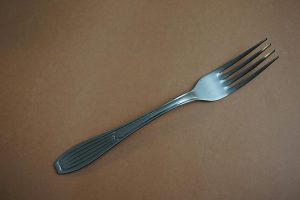The crucial link between a device’s weight and its perceived quality
The weight of a device may seem like a simple and minor factor when deciding on a purchase, but it actually plays a crucial role in the perceived quality of a product. Whether it’s a smartphone, laptop, or even a kitchen appliance, the weight of a device can greatly influence our perception of its overall quality. In this article, we’ll explore the link between a device’s weight and its perceived quality, and how manufacturers can use this factor to their advantage in the competitive market. 
The Importance of Weight in the Perception of Quality
When we think of a high-quality product, we often associate it with being heavy and well-built. On the other hand, a lighter product may give the impression of being cheap and flimsy. This is because weight is often associated with durability and sturdiness. A heavy product suggests that it’s made with high-quality materials and can withstand wear and tear, while a lighter product may seem delicate and prone to damage. In fact, weight is often used as a marketing strategy to convey the image of a premium product.
The Psychology Behind Weight and Perceived Quality
The relationship between weight and perceived quality is not just a marketing gimmick, but it is also backed by psychology. According to research, our brains have a tendency to associate weight with value and importance. This can be traced back to our primitive instincts, where heavier objects were associated with greater usefulness and survival. Over time, this association has been ingrained in our subconscious, leading us to perceive heavier objects as being of higher quality.
Furthermore, weight can also affect our perception of a product’s functionality. For example, a heavier kitchen appliance may give the impression that it is more powerful and efficient, while a lighter one may seem less capable. This is because weight is often equated with strength and functionality.
The Importance of Weight in Different Industries
The Tech Industry
In the tech industry, weight is a vital factor when it comes to consumer perception. A lighter laptop or smartphone may seem more modern and sleek, but it may also give the impression of being less sturdy and durable. On the other hand, a heavier laptop or smartphone may be perceived as being more powerful and reliable, but it may also be seen as clunky and outdated. Therefore, finding the perfect balance between weight and perceived quality is essential for manufacturers in the tech industry.
The Beauty Industry
In the beauty industry, weight plays a significant role in the perceived quality of a product. Lighter beauty products such as makeup or skincare items are often associated with being less effective or having a lower concentration of ingredients. On the other hand, heavier products may be seen as more potent and luxurious. This is why expensive perfumes often come in heavier, more elaborate bottles.
Conclusion
The weight of a device can significantly impact our perception of its quality, functionality, and value. This is deeply rooted in our psychology, making it an important factor for manufacturers to consider when designing and marketing their products. With the right balance of weight and quality, manufacturers can use this factor to their advantage and create products that are perceived as premium and desirable by consumers.
So the next time you’re in the market for a new device, pay attention to its weight. It may just give you an insight into its overall quality and worth.










